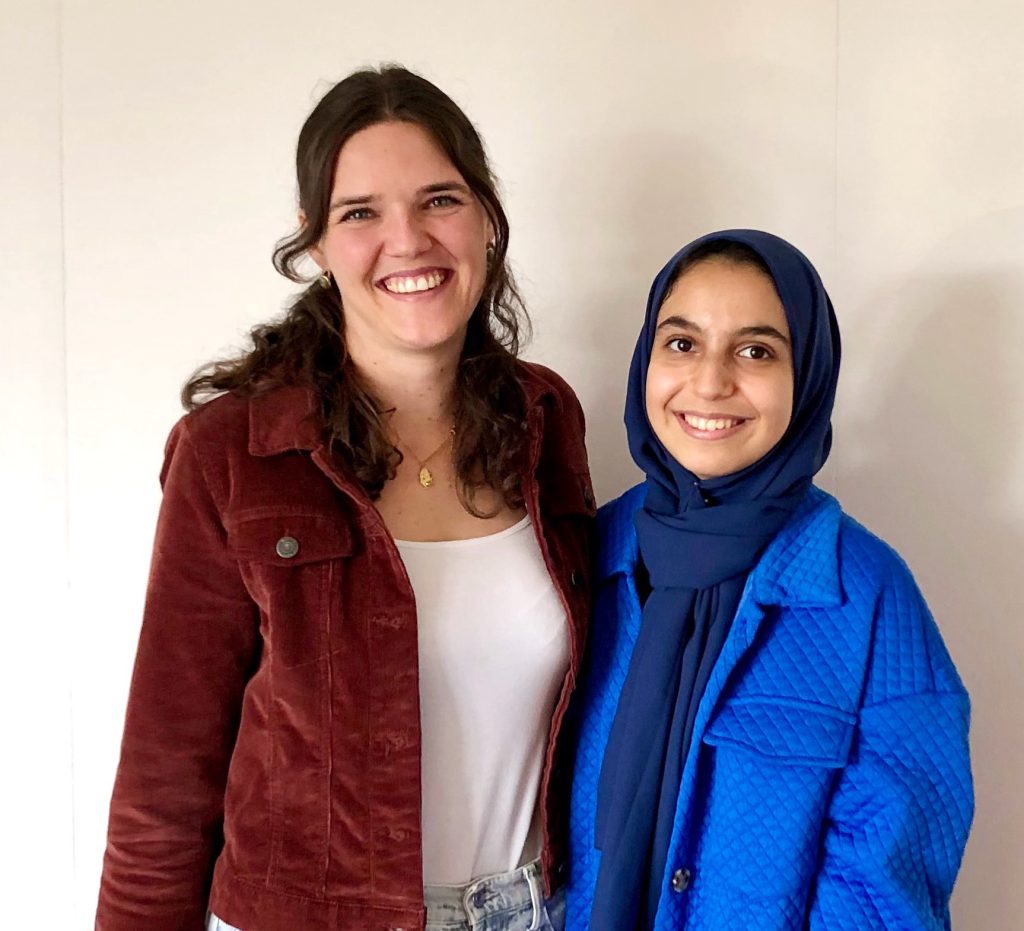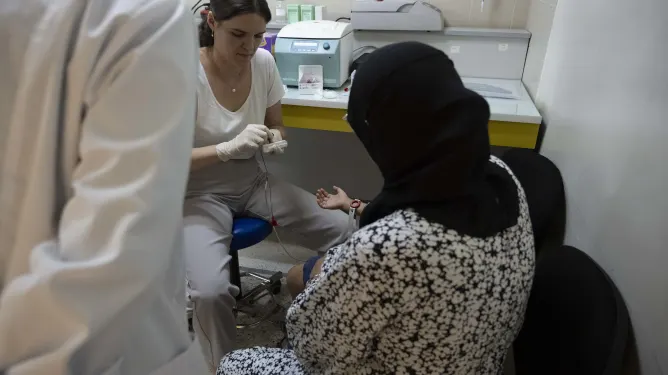Cystic fibrosis in Africa: Two PhD students fighting for hope

Too many cystic fibrosis patients in Africa die young and often without ever having been diagnosed. In many African countries there are too few test devices that could diagnose the disease. Nada and Michèle, two doctoral students at the University of Bern, launched a crowdfunding campaign to buy a test device and were overwhelmed by the result.
Caused by a genetic disorder, cystic fibrosis significantly shortens patients’ lifespans. It affects about one in two thousand babies. The fluids in lungs and pancreas thicken, which slows the growth during their childhood. Testing is vital because the symptoms in children are almost indistinguishable from malnutrition.
Since the devices are expensive, few hospitals in Africa have the possibility to test. In Morocco, for instance, only two test devices are available. In Switzerland on the other hand, the condition is diagnosed almost right after birth and thanks to a new treatment patients can live well into their sixties.
A European disease?
Nada El Mahzen is a PhD student at the Institute of Biochemistry and Molecular Medicine. She studies the gene that causes cystic fibrosis. Michèle Fuhrer writes her MD dissertation on the disease. The two students bonded over their shared desire to help diagnose cystic fibrosis and their frustration with the lack of testing and treatment in many African countries.
For Nada the worst aspect is that “cystic Fibrosis is still considered a European – or Caucasian – disease because there is a lack of data for African patients”. To get data, however, you need tests, which is both the beginning of a treatment and the basis for future research. A first diagnosis usually happens with a machine that measures chloride in the sweat of a child and then instantly gives a result.
The device costs approximately 10,000 Swiss Francs. Nada and Michèle decided to launch a crowdfunding campaign to buy such a test device for a hospital in Fèz, Morocco. “When we started, we had mixed feelings and were not sure if people thought ‘what a stupid idea’”, Michèle reflects.
A glimmer of hope
Nada and Michèle soon realised that their worries were unfounded. In total 106 people contributed to the campaign, and they unlocked a 5,000 Swiss Francs “Science Booster” donation from the Swiss National Science Foundation. The goal was reached so quickly that Nada and Michele decided to double their aim and buy a second test device for a hospital in Kinshasa, Democratic Republic of Congo.

In September 2023, Nada and Michèle travelled to Morocco to deliver one of the devices to Fèz University Hospital. When they arrived, the doctors told them that a four-year-old boy had shown all the symptoms of cystic fibrosis that very morning. He had been in and out of hospitals all his life, without ever receiving a reliable diagnosis. The child came back to the hospital and Michèle did the test – it was positive.
“Seeing this boy test positive was a really emotional moment. For the first time in his life, he had a reliable test result. He and his mother were very calm and collected,” Michèle recounts. Yet the experts knew that he would now have to battle a devastating disease. “He will only live into his twenties if he does not get the right treatment, but a reliable test result was a necessary first step towards his treatment”, Nada adds.
Pushing boundaries
With the delivery of the test device, Nada and Michèle’s work as researchers has only just begun. Nada will gather a group of patients to “conduct the first well-diagnosed cohort study on cystic fibrosis in Morocco,” she explains. She will research the gene variants that cause cystic fibrosis and that are specific to Morocco or North Africa.
With their crowdfunding campaign, Nada and Michele give thousands of patients the certainty of a reliable diagnosis and their research could potentially be expanded to all African countries.
Text: Caspar Bienek
Images: Patricia Teixidor and Caspar Bienek